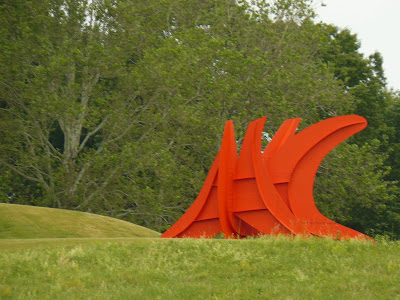I learned my insomnia from an expert. My mother would stumble out of her bedroom in her quilted housecoat and announce that she had had a bad night. I could almost hear her raw nerves scraping against each other as I watched her in the kitchen stirring the Birdseye and boiling the water for the instant Maxwell House. A bad night meant a headache and a headache meant stretching out on the couch, the cars and buses on Broadway backfiring in the distance. Late in the afternoon before it was time to empty the Campbell's condensed cream of mushroom soup into the frozen string beans, she would sometimes ask me to give her a pedicure. I would gather the supplies from the bathroom - a dusty rose towel to go under her feet, Pond's cold cream, emery boards, orange sticks and a pumice stone. In my little girl mind, the pedicure was a cross between a beauty treatment and a medical procedure and it seemed to comfort her, my listless mother, blurry from Seconal.
Mother often boasted that she had tiny feet, speaking with pride of the difficulty of finding what she called sample sizes, shoes so small they were only used for display purposes. She liked to think of herself as a slip of a thing, an Audrey Hepburn, even as she grew meatier over time, her thighs and belly oozing out of her girdle. If all else failed, she could dig out the vintage photograph of herself as a young married woman in 1940, her enviable waistline, her slender arms. In the end though, these Cinderella memories faded and all that was left were the diminutive feet, now misshapen from years of wearing fashionable pumps. I massaged the cold cream into the left one, then the right, pushing back the cuticles with the orange stick and rubbing off the callouses with the pumice. My mother rested and I nursed her. I caressed her feet.
In our family, I maintained my mother's feet and my father maintained mine. I would sit on the toilet with the lid closed and he would sit on a bathroom stool below me with one foot, then the other, on his lap. He would carefully clip the nails while I watched him attend to me. I remember this being a silent, somewhat solemn ritual. Cutting my toenails was one of two regular domestic chores that he was responsible for. The other was cracking walnuts, removing them from their shells and chopping them up for my mother's brownies and tollhouse cookies. He did not drive a car or wield a hammer, but he was handy with a nutcracker, a nail clipper and the tweezers he used to handle the stamps in his large collection. He approached the care of my feet with the same adoring concentration I saw on his face when he lifted an Algerian first day cover and placed it just so in an album. I guess you could say he had elevated fine motor skills. He caressed my feet.
My father showed no interest in his own care and feeding and I have no idea who tended to his toenails. It may have been my mother. She picked out his shirts and ties and laid them out on the bed for him each morning. On the rare occasion when she wasn't home in the evening, it was understood that he would not fix something for himself to eat. She would enlist one of her friends to invite him for dinner so he wouldn't just simply starve. No doubt, he would have relished the opportunity to eat cold baked beans straight out of the can, but that opportunity somehow never materialized. There were a great many accommodating Selmas. My father, on the other hand, had no friends of his own. No one to go to a ballgame with. No one to argue politics with. He was stuck with the husbands of the Selmas, an unappealing array of dentists and garment center functionaries.
I could tell he looked forward to trimming my toenails when they started to poke holes in my socks. I must have been in high school when I finally said, "No thanks, Daddy, I can do this myself." We were in the wallpapered hallway outside the bathroom. He didn't say a word, just turned around and headed in the opposite direction. What was there to say? By that time, I had my eyes on other boys and he would have to swallow his loss along with his meat loaf.
Please share your thoughts regarding this post and my 2019 book Twilight Time: Aging in Amazement by writing to me at seventysomething9@gmail.com. I will also reply to comments posted on this blog, so check back if you choose to carry on the conversation here.












